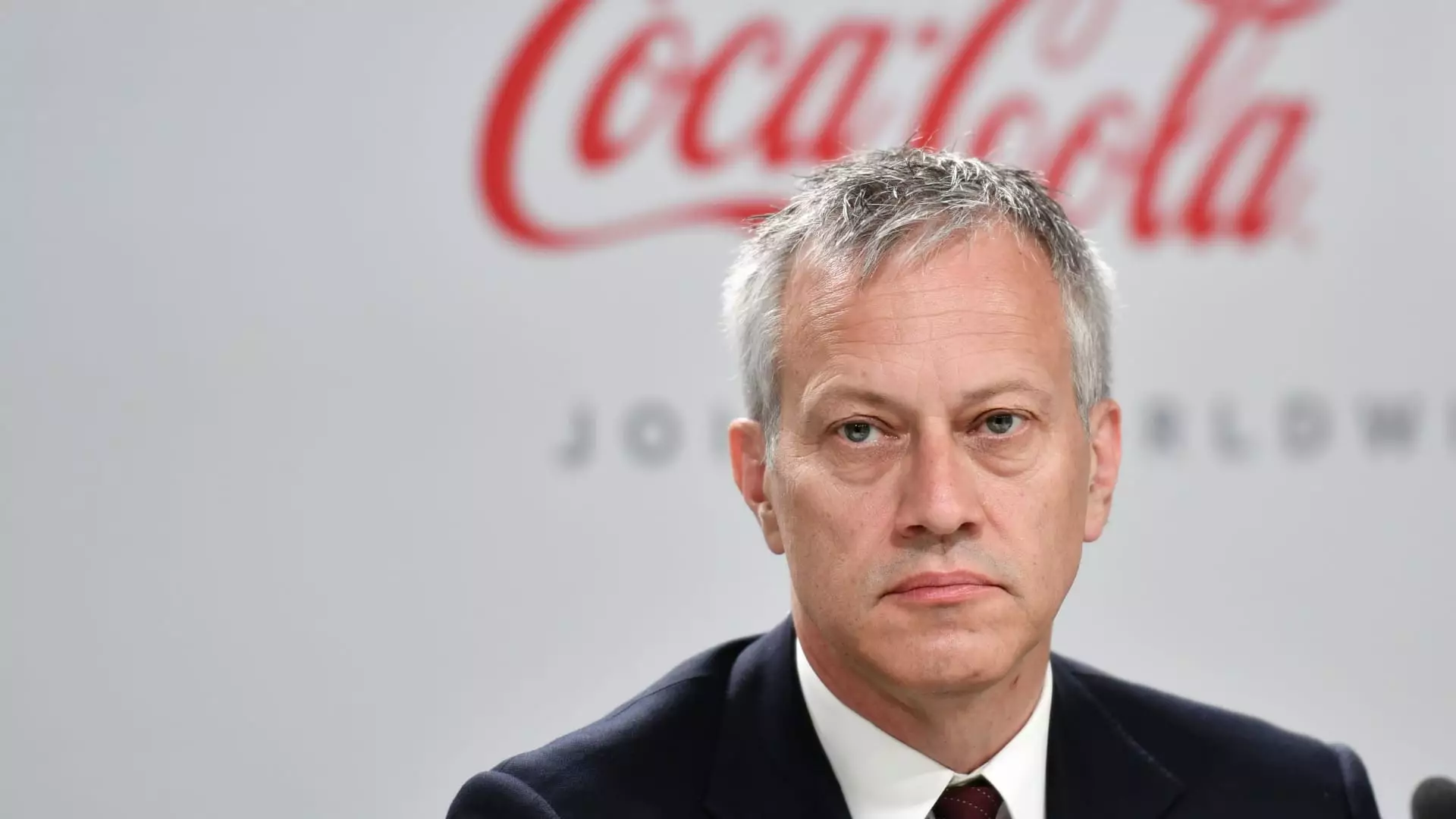In a complex business landscape, relationships between brands can significantly influence their market performance. Coca-Cola, a titan in the beverage industry, has maintained a long-standing partnership with McDonald’s, the world’s largest fast-food chain. Recently, this relationship was put to the test when an E. coli outbreak was linked to McDonald’s popular Quarter Pounder burgers. Traditionally, adverse events such as these can create ripple effects across connected companies, yet Coca-Cola’s CEO, James Quincey, has expressed confidence that the outbreak will not severely impact the beverage company’s sales. This statement illuminates both the robustness of Coca-Cola’s market strategies and the intricate nature of consumer behavior in the face of crisis.
The Centers for Disease Control and Prevention (CDC) has reported that 49 cases of illness and one death have occurred as a result of the E. coli outbreak, triggering discussions about potential public health risks and consumer apprehension. However, Quincey’s comments suggest an optimism grounded in historical performance and consumer loyalty, indicating that Coca-Cola has effectively navigated similar challenges in the past. The symbiotic relationship between Coca-Cola and McDonald’s goes back nearly seventy years, creating a scenario where effective collaboration can dilute adverse effects from such incidents.
It’s critical to recognize that while food safety concerns can impact consumer perception, the swift actions taken by McDonald’s to eliminate the suspected ingredients from their supply chain demonstrate proactive crisis management. The immediate removal of Quarter Pounders from several state menus alongside a call for all local restaurants to halt the distribution of slivered onions indicates a commitment to safeguarding customer health and restoring confidence in the brand.
Coca-Cola’s involvement in supporting McDonald’s during this crisis is pivotal. The financial backing for McDonald’s summer campaign of a $5 value meal demonstrates Coca-Cola’s willingness to invest in its partner’s recovery strategy. By focusing on making their value proposition more appealing and maintaining an attractive menu, both companies aim to counteract declining consumer spending—a concurrent trend affecting the broader fast-food sector.
As McDonald’s navigates these choppy waters, Coca-Cola’s role as an ally becomes even more critical. Quincey’s assurance that Coca-Cola will assist McDonald’s in any necessary ways underscores the depth of their partnership. This aligns with Coca-Cola’s overall strategy of not only being a beverage supplier but also a collaborative partner contributing to marketing initiatives.
Interestingly, the timing of the E. coli outbreak coincides with a broader market trend where consumer spending on dining out is decreasing. Fast-food chains, including McDonald’s and their beverage partners like Coca-Cola, have been compelled to lean into discounts and value meals to incentivize customer traffic. The potential increase in adverse perception surrounding McDonald’s products due to the recent outbreak could further challenge their sales momentum.
Nonetheless, Coca-Cola has managed to keep its head above water. Their recent earnings reports surpassed Wall Street’s expectations, largely buoyed by price increases rather than heightened sales volume. This reinforces the narrative that while external pressures are at play, Coca-Cola’s financial strategies—primarily relying on price adjustments rather than volume growth—can provide a buffer against downturns in partner brands.
As Coca-Cola and McDonald’s face challenges from the recent E. coli outbreak, the resilience of their partnership reflects a strategic alliance built over decades. While the immediate future may hold uncertainties, Quincey’s optimistic outlook serves as a testament to Coca-Cola’s confidence in navigating through the complexities of market dynamics and consumer perceptions. With proactive measures and strategic collaboration, both companies can potentially turn a negative situation into an opportunity for growth, potentially even reinforcing their partnership in the process. The journey ahead will be a litmus test of their adaptability and commitment to consumer safety and brand integrity.

